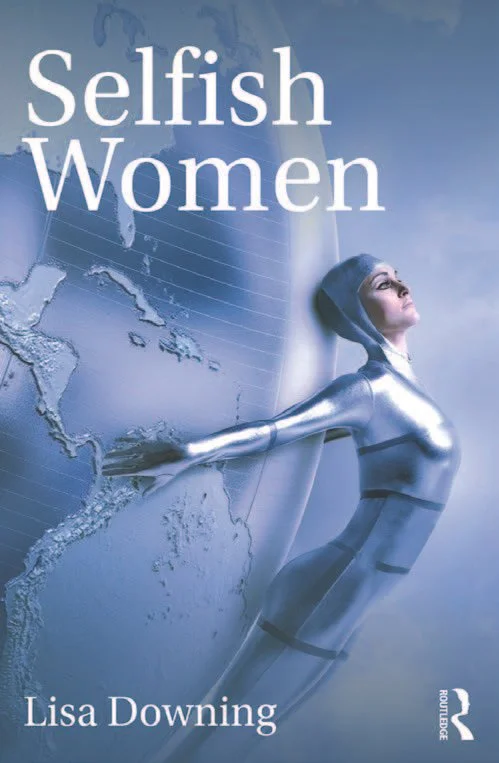Selfish Women
Selfish Women
By Lisa Downing
Reviewed by Natasha Sanders-Kay
Selfish Women is a scholarly study of female selfishness, self-interest, self-regard, and selfhood in the context of a Western cultural imaginary, which dictates that as women “we are not supposed to prioritize ourselves.” Cultural critic Lisa Downing illustrates how expectations of female selflessness play out not only in the patriarchal main- stream, but also within feminism itself, where self-interest and individuality get conflated with neoliberalism and individualism. With this in mind, she employs feminist analysis both as a methodological tool and as an object of scrutiny, and argues for a feminist ethic of female “self-fulness.”
Downing makes a compelling case: from the psy sciences, which have tended to contextualize women only as mothers, to contemporary feminist calls to “decentre” the self, she identifies “a cultural phenomenon in which women’s relation- ship with the whole concept of self is imagined differently from that of men.” For this reason, the author employs a counter-discursive method: she dares to examine the words and ideas of proudly individualist, “unpalatable” women such as Ayn Rand and Margaret Thatcher, arguing that excluding these women’s voices from social discourse limits our ability to see women as people, women as women, and women as individual selves: “I believe it is important to listen when women speak in ways that are shocking, that are eccentric, that question long-held discourses about what women are and are for.” It is emphasized that neither Rand nor Thatcher were understood on their own terms, but rather in terms of their gender; it seems prominent male figures like Nietzsche and Foucault, Heidegger and Althusser, Miller and Mailer, and countless male political leaders are celebrated as geniuses for their individualist, sometimes violently misogynistic ideologies, while women who exhibit these qualities are considered “not really women,” but more “like men,” if they are deemed human at all (Thatcher has frequently been deemed a monster). There is no room for them to simply be, not in the hatefully sexist criticism of mainstream discourse, nor in feminist reviews which tend to mine for unconscious motives. The public reception and internalized misogyny of these figures point to “the immensity of the task of valorizing self in the misogynistic culture that has defined woman against it.”
Selfish Women suggests we recognize “the singular female genius as offering a blueprint for reimagining the potentiality of women as a group,” arguing that in disallowing female individuality and differences of opinion we are repeating patriarchal logic (emphasis in original). Here the author takes issue with twenty-first-century intersectional feminism, finding it “promotes a particular version of individuality, so that each person needs to think of themselves in terms of the particular multiple oppressions to which they are subject and the particular privileges from which they benefit — that then become the sum of their situated political identity. This both sidelines class-based analysis or strategic consensus-building ... and silences the possibility of eccentric individual dis- sent.” Though I personally find this assessment of intersectionality dangerously reductive, many of Downing’s insights ring true in terms of divisive callout culture, no-platforming and feminists’ policing of and competing over each other’s inter- sectional credentials.
Selfish Women proposes a feminist ethic of selfishness that goes beyond individualism and collectivism, one that instead honours the necessary interplay between. Surprisingly, Downing turns to second-wave feminism for this project — challenging many third- and fourth-wave feminists’ criticisms of this generation as oppressively collectivist — and revisits the words of writers and thinkers like Andrea Canaan, who said “I must work both as an individual and as a part of my community in order to survive in order for my community to survive,” and the famously unpalatable Andrea Dworkin, who stated that “at the heart of the male system there is a profound con- tempt for anything in women that is individual” and that “[f]eminists have a vision of women, even women, as individual human beings; and this vision annihilates the system of gender polarity in which men are superior and powerful.”
A risky, radical, and ultimately rewarding read, Selfish Women warns against “giving up some- thing that women have never properly owned, and on which our grasp is still tenuous” — ourselves.

